
Mount Sinai.
At the latest Marghdeen Learning Centre course (Thinking with the Soul) last week, the present (seventh) lesson is titled “Completion”. It’s focusing on this Iqbalian concept, summarized in the introduction of the lesson as follows:
The ultimate aim of the ego is not to see something, but to be something. In this effort, it develops the ambition to come into direct contact with the Ultimate Reality. One who stands unshaken in the Divine Presence is the one about whom it could be said that the person has achieved completion – by acquiring a more precise definition of one’s self, ‘which deepens the whole being of the ego, and sharpens its will with the creative assurance that the world is not something to be merely seen or known through concepts, but something to be made and re-made by continuous action’. Still, the journey doesn’t end, as life is one and continuous.
Put in Iqbal’s own words: “the world is not something to be merely seen or known through concepts, but something to be made and re-made by continuous action”.
The task for the lesson was to answer this “simple question”: Is that how you are feeling at the end of this lesson? Why, or why not?
Every participant was expected to post his/her answer at the MLC forum (a blog set up as the online venue for the course).

The Peace Man: A true anarchist (though he doesn’t like labels).
One of the participants, Abdul Aziz Khan, posted this brilliant reply (emphasis mine):
This last lesson is deep enough to be a course of its own. The idea discussed here can be expanded into so many realms, with so many repercussions that a total (and ongoing) reconstruction would be needed, not just of religious thought but legal, social and ethical principles. It calls for a constant breakdown and re-invention of everything until we reach “somewhere.” That “somewhere” is so big and so powerful that no ideology, philosophy or religious interpretation has been able to even give a name to it. Thus (for the sake of this discussion) let it remain un-named.
What are my own feelings?
a) A distrust in inherited morals and cultural perceptions of right and wrong.
b) A distrust in reason for I am convinced that reason can only piece together data from five senses. Yet this course convinced me of something that I already knew all along. I am bigger than what I see, hear, taste, touch and smell.
c) Desire for an anarchy that I could call my own. No one else needs to own it for it will have no use for national labels and cultural insignia. It will be the start of a first step towards “somewhere” and the guiding principles for those steps are not to be understood. They lie above understanding as understanding itself is a rational sort of a thing.
This post almost perfectly describes the meaning of a line straight off the wall in the Peace Man’s room in Systems:
The Truth has no name.
——————————
The Marghdeen Learning Centre is an Iqbal Academy subsidiary body teaching the philosophy of Iqbal in straightforward terms. Anyone who enrolls at certain Marghdeen Learning Centre courses (including The Wisdom of Moses and Thinking with the Soul) courses gets an ebook copy of Systems for free in any format.


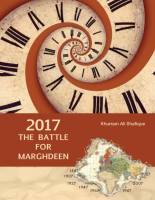

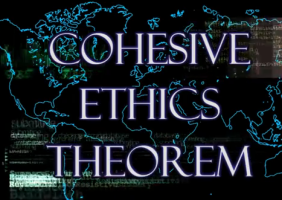
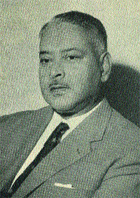
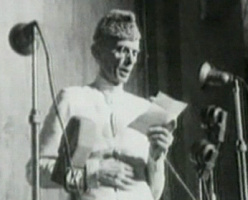

 Meanwhile my novel was developing slowly. I had an idea for an experiment that would simulate history and test social systems, including an ‘ideal’ one. Computer simulations are commonly used for predicting weather patterns and observing changes in ecosystems. To my mind a social system simulation seemed perfectly feasible – more feasible, than say, trying to set up an experimental ideal society within an existing country where all sorts of practical obstacles would get in the way. A simulation would provide a controlled environment and in fact would be a more reliable test. In the novel, the Systems Experiment would prove that an ideal society was possible, and then the bad guys would go and ruin it all … as they always do. 🙂
Meanwhile my novel was developing slowly. I had an idea for an experiment that would simulate history and test social systems, including an ‘ideal’ one. Computer simulations are commonly used for predicting weather patterns and observing changes in ecosystems. To my mind a social system simulation seemed perfectly feasible – more feasible, than say, trying to set up an experimental ideal society within an existing country where all sorts of practical obstacles would get in the way. A simulation would provide a controlled environment and in fact would be a more reliable test. In the novel, the Systems Experiment would prove that an ideal society was possible, and then the bad guys would go and ruin it all … as they always do. 🙂 The first book I ever started – long before even SJ1 – was fiction. For a long time I had notions about the emotional content, and that it should be an epic. I even developed the characters, and knew that the story would contain a quest for a valuable item, but otherwise there was no solid plot. It refused to come together because it lacked focus. The thing had a beating heart, but no brain. Or maybe it was the other way round.
The first book I ever started – long before even SJ1 – was fiction. For a long time I had notions about the emotional content, and that it should be an epic. I even developed the characters, and knew that the story would contain a quest for a valuable item, but otherwise there was no solid plot. It refused to come together because it lacked focus. The thing had a beating heart, but no brain. Or maybe it was the other way round.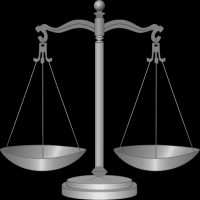
 … And so on. But I soon realised that most of these items could be grouped together by their corresponding ideal. The first two of the above list could be grouped together under the ideal value ‘freedom’, and the latter three under ‘justice’. I also recall thinking that many (if not most) of these and similar principles could be classified both under freedom and justice. In fact these two seemingly separate ideals are ultimately united, but I hadn’t recognised this yet. Nor did I know that this was the germ of the idea for what would later become the Cohesive Ethics Theorem.
… And so on. But I soon realised that most of these items could be grouped together by their corresponding ideal. The first two of the above list could be grouped together under the ideal value ‘freedom’, and the latter three under ‘justice’. I also recall thinking that many (if not most) of these and similar principles could be classified both under freedom and justice. In fact these two seemingly separate ideals are ultimately united, but I hadn’t recognised this yet. Nor did I know that this was the germ of the idea for what would later become the Cohesive Ethics Theorem.

